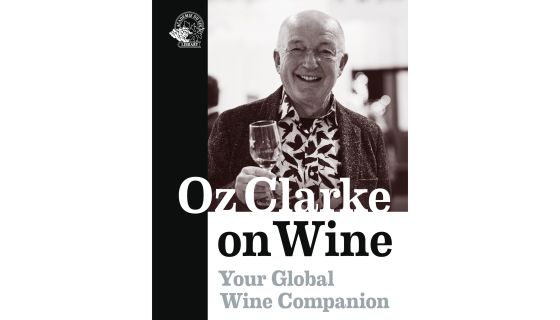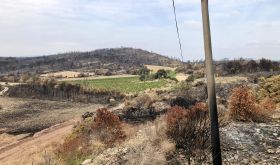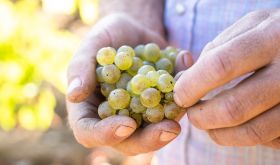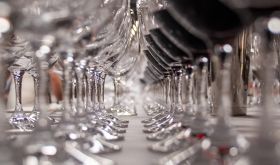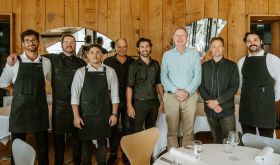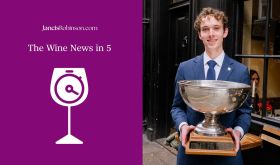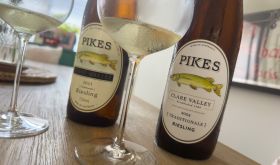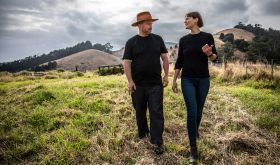Iain Moss writes my name is Iain Moss. There is already a lot of me in this article since it is a very personal piece. I was born in the UK but have spent the last 30 years living all over the world with my wife and two daughters working as an IT consultant. I currently live with my wife in Malaysia. Until now, I have never been able to turn my love of wine into a career but I have just passed the WSET Level 4 Diploma in Wines and gained my DipWSET. I am now establishing a wine consultancy and education centre in Kuala Lumpur and hope, one day, to embark on the MW programme
As a working-class family living on a council estate just north of London, our favourite wine person was Oz Clarke.
The TV program my father loved most was ‘Food and Drink’ on the BBC. He was an orphan and had been brought up in a Barnardo’s home in Scotland so his exposure to fine wines and gourmet foods growing up had been rather limited and the trade Barnardo’s had given him, that of repairing shoes, while sufficient to support himself and his family, didn’t leave anything left over for those kinds of luxuries. But he was an intelligent man who believed that the most important thing in life was education and the BBC, both through its programmes on TV and the World Service on the radio, was his university.
His single objective in life was that my brother and I would have the formal education he never had. We would go to university, even though nobody in our family had ever been to university before. If we were to go to university, preferably Oxford or Cambridge (he didn’t believe in setting your sights low), it would mean that we needed to understand the ways of the educated classes: which knife and fork to use, how to choose food from a menu, what wines to order. ‘Food and Drink’ was the bible, the instruction manual, the fountain of all knowledge and we were required to drink from it every Tuesday evening.
In fact, my father rarely took alcohol, and it was unusual for us even to have alcohol in the house, but my mother’s family had once owned a small brewery and somehow, even many years after it was swallowed up by a larger brewery in my hometown, my grandfather and uncle remained employed in the firm. It was a benevolent employer and every Christmas it would supply its employees with all the Christmas booze they could ever want. The pinnacle of this largesse was the wine they provided for Christmas dinner: Liebfraumilch for the ladies, something French and red for the gentlemen and Sauternes for the children. It was a different world then.
As a result, in a town and a time when people could go through their whole lives without drinking wine, we considered ourselves something of an expert on the wine side of things and we were very keen on the ‘Drink’ element of ‘Food and Drink’. We loved Chris Kelly, Michael Barry and Jilly Goolden with her hyperbolic descriptions of the wines (‘absolute mangoes!’) but, most of all we loved Oz Clarke. He was funny, where we had expected him to be deadly serious, easy-going when he might have been stuffy and condescending and he talked about wine as a thing of pleasure, of joy, a living thing that you could grow to love. He made us want to try wines, learn about them, compare them, meet the people who made them and see the places where the grapes grew. He lit a spark in me that has been fanned into a lifelong love of wine.
Years later, I had the pleasure of meeting Oz. In the days of the mainframe computer when American IT companies had more money than they knew what to do with, my company had an Executive Conference Centre on a hillside near St. Paul de Vence just outside Nice. It was a place where we wined and dined the senior executives of our customers from all over the world. We would take them there for 3 or 4 days, invite experts from their industries to come and speak and maintain them in the lap of luxury, hoping to cement their relationship with our company and our products. In the evenings we would entertain them. The first time I took customers to a conference, the entertainment at the Gala Dinner on the last evening was a guided wine tasting with Oz. Since I had organised a few wine-tasting events for fun back in our offices in London, I was asked if I would look after him for the evening, make sure he had everything he needed and sit with him at the dinner.
I was quite apprehensive. They say you should never meet your heroes and I was worried that the Oz Clarke we knew and loved from Food and Drink would turn out to be just a TV persona. I could see myself having to break the news to my dad:
“You know, I met that Oz Clarke the other day. What a nightmare! He’s not like he is on Food and Drink at all. No sense of humour and a real wine snob.”
Fortunately, of course, there is only one Oz Clarke, even though, paradoxically, as a Gemini, he personally believes he is actually two competing personalities sharing one body. There is only the Oz Clarke who loves wine and wants you to love wine and believes no one is ever wrong about the wine they like; the Oz Clarke who wants you to enjoy what you like not what you think you ought to like; the Oz Clarke who is as comfortable extolling the virtues of a 1962 Château Léoville Barton as he is singing the praises of a good, fruity, cleanly-made Australian Chardonnay; the Oz Clarke who loves steam engines and baroque music but bizarrely claims to have a morbid fear of Morris Dancing.
After a masterful Masterclass in New World versus Old World wines the entertainment continued throughout dinner. Oz is as much an accomplished during-dinner speaker as he is a before-dinner and after-dinner speaker. One of our fellow diners, like everyone who has ever met Oz, I am guessing, asked him how Robert Owen Clarke had acquired the nickname Oz. He took delight in regaling us with the tale of what he described as the nicest thing that had ever happened to him in the school showers. While a chorister at Canterbury Cathedral and a choral scholar at the Kings School Canterbury, he had played cricket for the school team. As a choir school, they were not the most gifted of cricketers and were roundly beaten every week by local school teams. On this occasion, facing up to an aggressive fast bowler intent on cracking his head open with bouncers, Oz fought back and hooked every ball in the over for six, much to the anger of his headmaster who believed a gentleman should only ever play with a straight bat whatever the bowling. In the showers afterwards, his teammates dubbed him ‘Oz’ because he had played just like a batsman from the Australian cricket team who were deemed to be the best cricketers in the world at the time.
He also told us about his first encounter with wine, a bottle of his mother’s damson wine at the age of 3 stolen at a family picnic while his parents were rescuing his brother from drowning. His father fortunately was a doctor and immediately forced the almost comatose infant to vomit. Oz’s first tasting note was that damson wine tastes just as good on the way back up as it does on the way down.
The bar at the executive centre was seen as the most important place in the building. It was the hub for relaxing and networking and, hopefully, for closing business deals. The custom was that, after the staff had gone to bed, the bar was left completely open and then operated throughout the night on a self-service basis. Oz didn’t take much persuading to join us for a drink after dinner and after our dining companions had gone to bed, we stayed on together in the bar. I was surprised to find we had a lot in common. To my father’s eternal joy, I had managed to get to Oxford and I had very nearly taken up the offer of a place at the same college as Oz, Pembroke, although obviously not at the same time. We had both acted at Oxford and gone to the Edinburgh Festival with the Oxford Revue but he had had real acting talent and gone on to become a professional actor and eventually a member of the Royal Shakespeare Company. We had both also discovered wine at Oxford and been members of the University Wine Society where we had enjoyed tasting competitions. He had taken up wine tasting in the mistaken belief it would impress girlfriends but had developed a passion for wine, eventually reached the dizzy heights of captain of the university wine-tasting team. We talked about his love of singing, his membership of Schola Cantorum of Oxford and his association with Armonico Consort performing Renaissance and Baroque music around the country. After University, he had won an opera scholarship but had quickly realised that opera wasn’t for him and that musical theatre was. This had eventually led him to play the leading role in Sondheim’s Sweeney Todd in the West End. It was a role he loved but driven by his passion for wine he had eventually left the stage to write his as yet unpublished wine masterpiece ‘Scratch, Gurgle and Sniff’.
Wine tastings with Oz became a popular feature of our executive seminars in Nice and I met him a number of times over the years. He was always exactly as we had experienced him on TV growing up: good-humoured, down-to earth and an agreeable drinking companion with an infectious enthusiasm for wine but I also discovered that he had a range of hidden talents that had we had known nothing about. The title renaissance man has been overused in this age of polymaths such as Stephen Fry but maybe we could call Oz a baroque man: an actor, singer, musician, writer and wine expert who personifies the true meaning of baroque in its original Portuguese; a pearl but an irregular one.
The image was provided by the Académie du Vin Library, the publisher of Oz Clarke on Wine and our WWC23 partner. You can read Tam's enthusiastic review of the book here.

